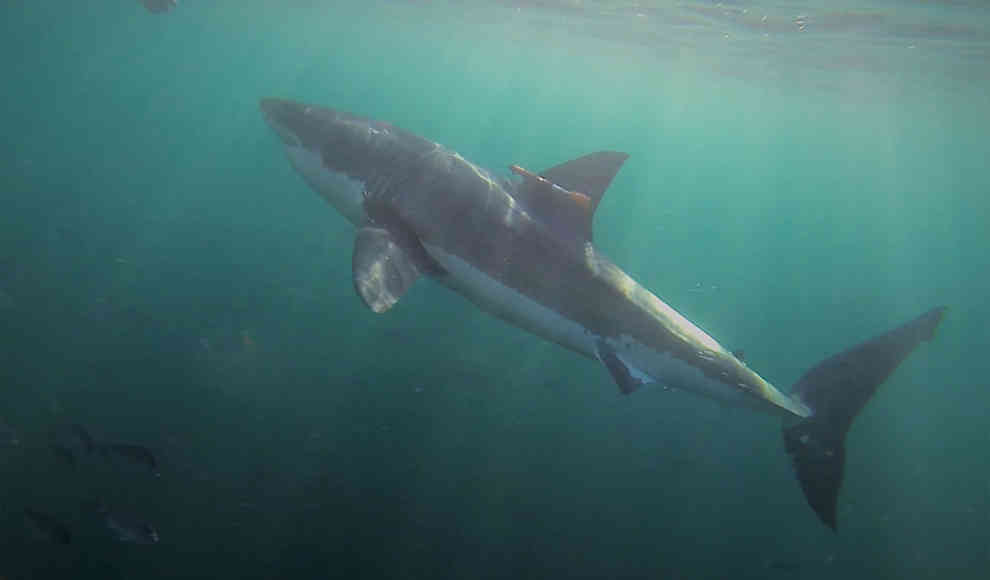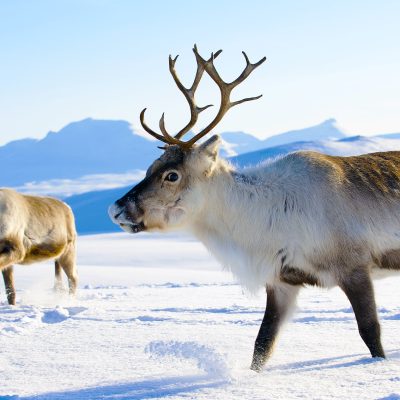New research has revealed that the hunting behavior of Great White Sharks varies significantly depending on their location. Scientists from the Monterey Bay Aquarium Research Institute and the Max Planck Institute for Ornithology have published a study in Biology Letters detailing the hunting behavior of the sharks. The study found that Great White Sharks also hunt for seals in kelp forests, an area previously thought to be a natural barrier. The new knowledge about the behavior of these predators could help prevent unwanted encounters between humans and Great White Sharks, making the preventive killing of these endangered fish unnecessary.
To conduct the study, the scientists lured wild sharks with bait to their boat in the marine protected area off Dyer Island. They then attached cameras and GPS sensors to the sharks’ dorsal fins to document their movements and hunting behavior. The footage showed Great White Sharks hunting for seals within kelp forests, an area previously thought to be a natural barrier. The sharks in these areas also hunt during the day and come to the surface less frequently than their counterparts in open water.
The researchers hope that this new understanding of Great White Shark behavior will help prevent accidental encounters between humans and the predators. The study is part of the Icarus Project of the Max Planck Institute, which observes various animals during their global migrations. The commercial hunting of Great White Sharks is generally prohibited due to their endangered status, but some countries allow the targeted killing of individual sharks to prevent attacks on humans. The new knowledge about the behavior of these predators could help prevent unwanted encounters between humans and Great White Sharks, making the preventive killing of these endangered fish unnecessary.
In the future, the scientists plan to observe the behavior of Great White Sharks throughout their entire lives to determine if they significantly adapt their hunting behavior over time. The study’s findings suggest that Great White Sharks may have individual hunting strategies and develop different hunting traditions depending on their location. By understanding these behaviors, scientists can work to prevent unwanted encounters between humans and Great White Sharks, ultimately protecting both species.










